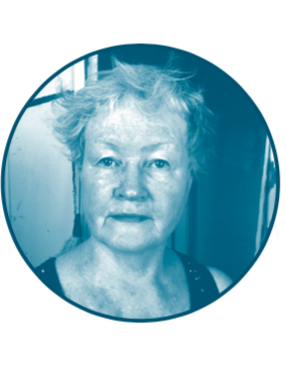by Judith Pugh

With occasional diversions into political activism and other more mundane activities, Judith Pugh has spent her life in the arts; she now writes in Regional NSW.
This article is a companion piece to Wendy Bacon & Ian Milliss’ articles, check them out below:
Wendy Bacon: ‘Suburban Battlers who Changed the World‘
Ian Milliss: ‘Selective memories‘
I’ve always avoided Anzac and Remembrance Day Ceremonies. The men in my family avoided them: they did their duty, then they turned their thoughts from war. They didn’t march, they didn’t identify as ex-military, and the further in the past their service the less comfortable they were with Anzac Day.
In a storm during a battle, escorting an Arctic convoy, one of my maternal uncles saw an overheating shell stuck in a gun barrel which had contracted because of the intense cold. Vaulting over a rail on a violently rolling deck, he grabbed the shell and threw it overboard. My grandmother told me this in the context of his athleticism. He never mentioned the incident.
Rupert Murdoch has so vulgarised the media that one forgets his father Keith Murdoch’s Melbourne Herald had been reporting on the behaviour of the fascists, even in the arts pages, long before war was declared in 1939. Melburnians like my family had been reading about the treatment of European Jews and of dissenters; my uncles and my father joined up because they had thought about what these incidents meant for the democracy they valued.
My protestant uncles were very conventional, my Catholic father and his brother more progressive. Dad had been at a ski lodge when war was declared in 1939, and told me that when other people began to celebrate, he went outside alone, wondering why anyone would be pleased to have to go to war. He was scathing of the RSL’s lobbying power; of an Anzac Day that became an excuse for drunkenness, a celebration of militarism itself. His contempt towards the notion of “heroes” derived from his brother’s experience in the War.
At the fall of Singapore, Uncle John and his men became prisoners of war of the Japanese. Uncle John’s stories of the various camps and the events therein were sophisticated, often amusing, always reminding us that the Japanese soldiers were in a rigid authoritarian system and behaved according to their cultural understandings and material circumstances. Yes, he and his men were starving, but that meant that the Allies had breached their supply lines; and the Japanese too were short of food and medical supplies. He discussed systems established to assist everyone to survive, he described certain incidents in quite a lot of distressing detail. These stories were always told to instruct me: principle is more important than advancement; lead from the middle; never ask anyone to do anything you wouldn’t do yourself; people should be understood from their own point of view.
When relatively young, Uncle John had a disabling stroke, and my father assisted him to apply for a pension. The Department of Veterans Affairs refused the application, on the basis that stress was not a factor in the condition. Dad wrote to the POW newsletter asking if anyone recalled him sustaining any head injuries. Yes. An officer’s duty is to protect his subordinates, so when a Japanese soldier was beating one of his men, he stepped between them, or if they’d been knocked down, Uncle John lay on top of them and took the blows of the rifle butts on his head.
My first husband enthusiastically joined the army, was sent to New Guinea and the Celebes, cheerfully killed the enemy in hand-to-hand combat, and then with his mates killed a group of Japanese soldiers who had surrendered to them, and with whom they had camped for several days. Later, sent to Japan with the occupying force, he heard about and saw the effects of the Hiroshima bomb. First the blinding flash of light – and the victim, if facing the explosion, was immediately disabled. Then the intense wave of heat, blistering the skin wherever it was exposed, scorching clothes, then the shock wave ripping open blisters and burning cloth. The radioactivity killed all bacteria, and he saw the dreadful irony: those who arrived to help brought infection with them. He walked among men and women who had lived through the trauma, lying in silk hammocks, burned, suppurating, waiting to die. He considered what he had done and seen, and became an anti-war activist. He did not celebrate on Anzac Day.
Uncle John lived with us after the War as his life returned to its planned trajectory; and spent hours with me, a small child. I don’t need Anzac Day to remember him. So when I moved to a small rural village where the annual Anzac ceremony occupies the minds of locals, I was not keen to attend. But after a couple of years it seemed impolite, and this year I watched as a photograph of a local who served in the Australian Imperial Force was presented to hang in the supper room beside those of other locals who’d been servicemen. The family summed up that contented and unremarkable post-war life, and I found myself wishing that Uncle John might be so remembered. For a moment, I imagined memorialising him, his service, his sacrifice.
And then I realised: this ceremony, these photographs, don’t refer to sacrifice, or character, or even the war. These perfectly pleasant people are having an annual get together, with encouragement and funding from the Federal Government and Local Government. It’s about memory, but the memory is not of battles or comrades dying in an Asian jungle. It’s about living in this district, belonging to this district, coming from this district. Only those connected to this place, the settler occupation of this place, are here enshrined.
That’s the reason John Howard, Tony Abbott, and the bunch of non-combatants who, pumping money into the extravagant ridiculous reconstruction of the Australian War Memorial, starving other galleries and museums, have commercialised Anzac Day and Remembrance Day. It’s a blind. It’s a brilliant blind. Anzac celebrations announce that unless you’re a local, with some connection to a serviceman, you’re not one of us.
It’s a way of othering all the European refugees, the migrants, holocaust victims, the people who left chaos in Asia, South America, for the stability and opportunities Australia offers. This perverse annual public celebration of belonging subverts the multicultural narrative, it encourages the vanilla settler image of nation, it is an annual way of asking for a public commitment to that image. To honour the men in my family who went to war, I won’t be there next year.
